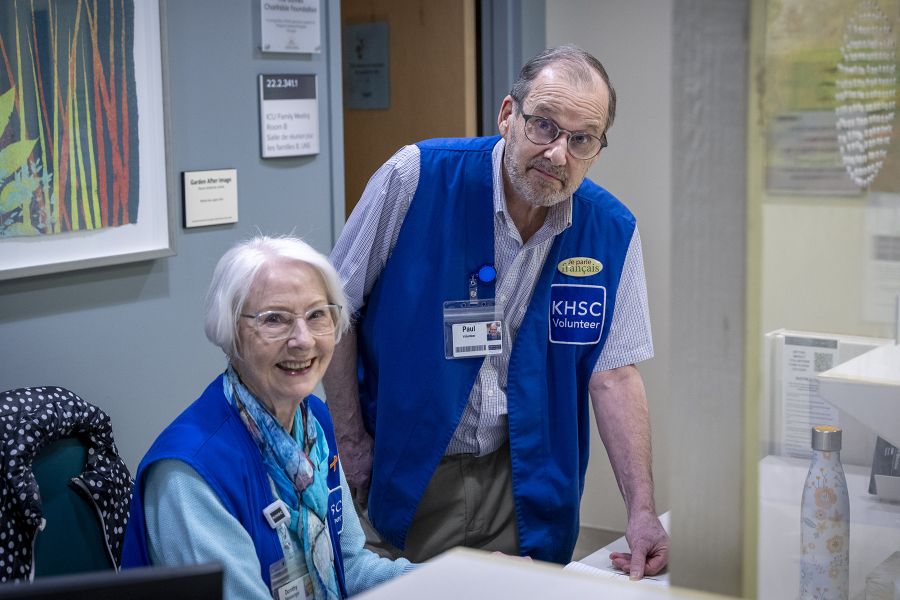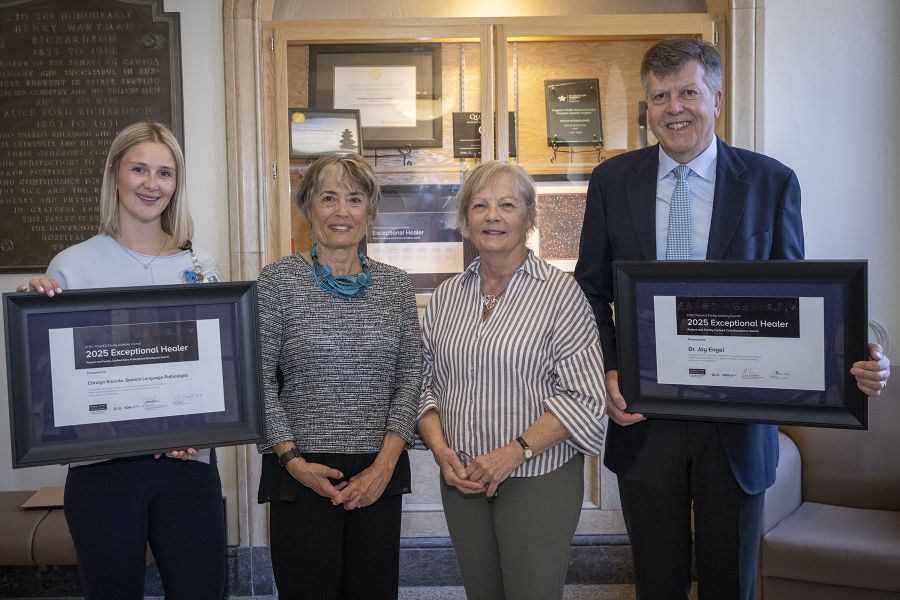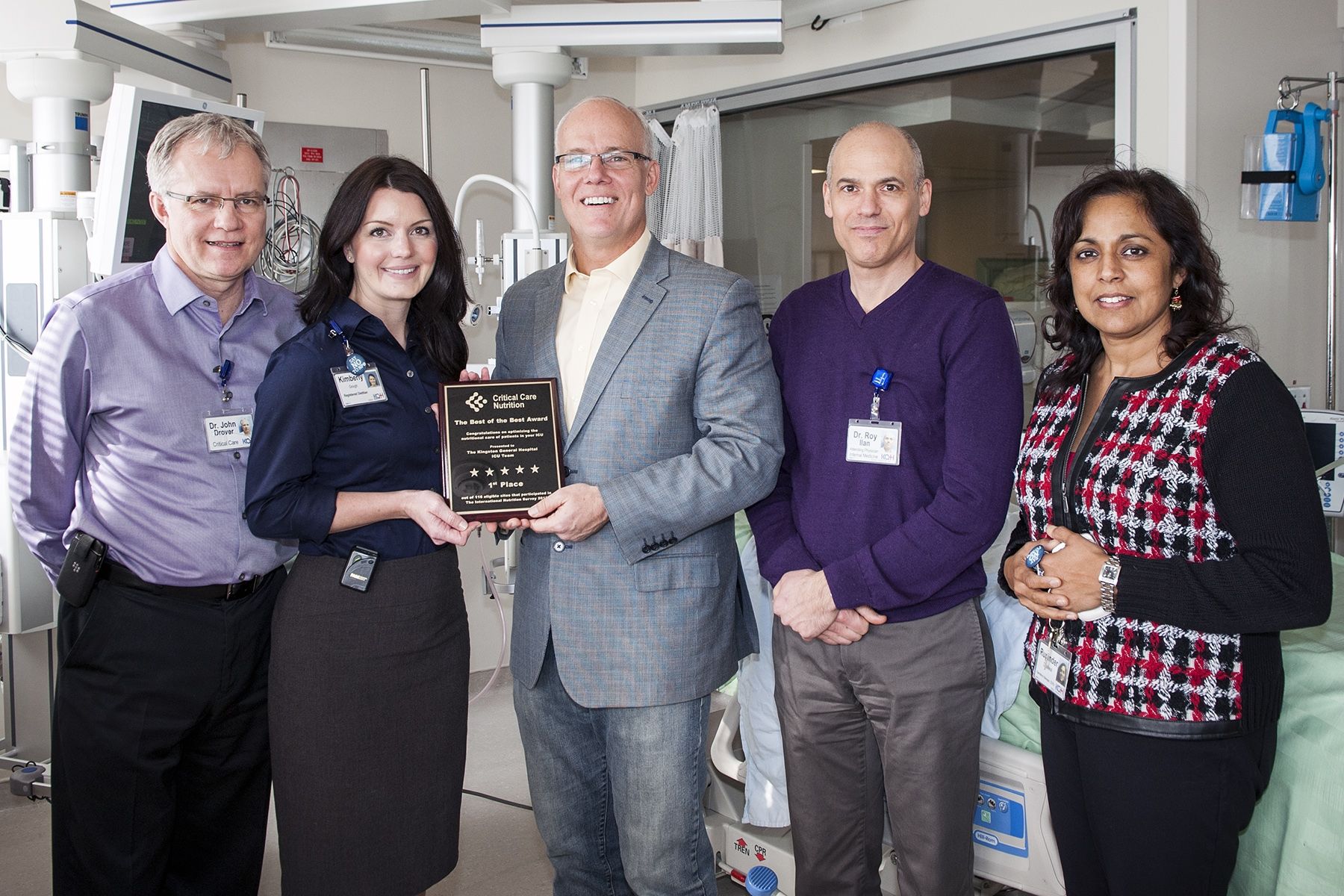
Patients in an Intensive Care Unit are always in need of complex and urgent medical care. But they also need something that's often overlooked in hospitals, and that's enough nutrition to help them recover. Here at Kingston General Hospital, we've made delivering these crucial nutrients a priority and it turns out, we remain a world leader in this area.
In the 2013 International Nutrition Survey, we tied for first place with an ICU in Colombia and received a 'Best of the Best' award. That's up a spot from the second place finish we scored the last time we took part in the survey in 2008.
"This award is the result of many years of work here at KGH to support nutrition for the critically ill," says Dr. John Drover, Critical Care Program Medical Director. "We also have a culture of collaboration and teamwork within the ICU and Critical Care program that helps us constantly improve in this important area of care and research."
The survey is run about every 18 months by the Clinical Evaluation Research Unit (CERU) based here at KGH, under the leadership of Dr. Daren Heyland and Rupinder Dhaliwal, Manager of Research and Networking at CERU. In 2013, over 200 different ICUs signed on for the survey and submitted data, including hospitals in the United States, Europe, Asia, South America, and Australia.
The survey requires each ICU to track a minimum of 20 adult patients requiring mechanical ventilation to breathe. These patients would also be receiving artificial nutrition through either a tube into their stomach or a catheter into their veins. The survey then looks at the nutrition the participating patients were prescribed and how quickly they received it.
"These surveys have shown us that very often ICUs don't do a good job of making sure their critically ill patients are receiving an adequate amount of nutrition during periods of peak illness or stress," says Dr. Heyland, Director of CERU. "What KGH demonstrates by consistently delivering such high-quality nutritional care is that these guidelines are achievable for everyone."
After all the survey results are validated, each participating ICU then receives a report to help them celebrate successes and zero in on areas for improvement. The report also compares them to other hospitals and evaluates how they are doing in meeting the Canadian Clinical Practice Guidelines, which are also put together and updated regularly by the team at CERU.
"There is a lot of literature that shows that starting patients early on nutrition delivery leads to shorter stays and improved mortality rates," says Registered Dietitian Kim Gough who helped put together KGH's submission. "I'm pretty proud to be working in an environment where everyone on the care team works together the way we do to support excellent nutrition care."
Gallery
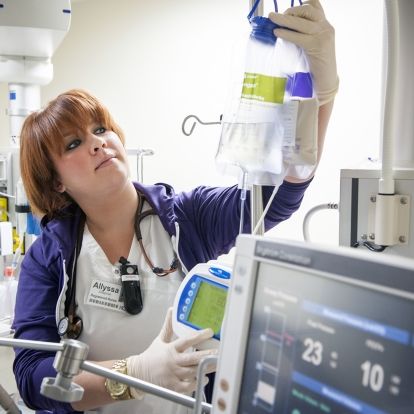
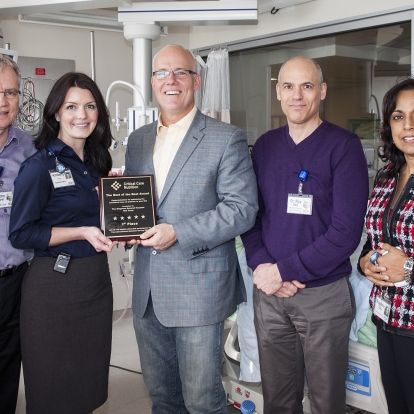
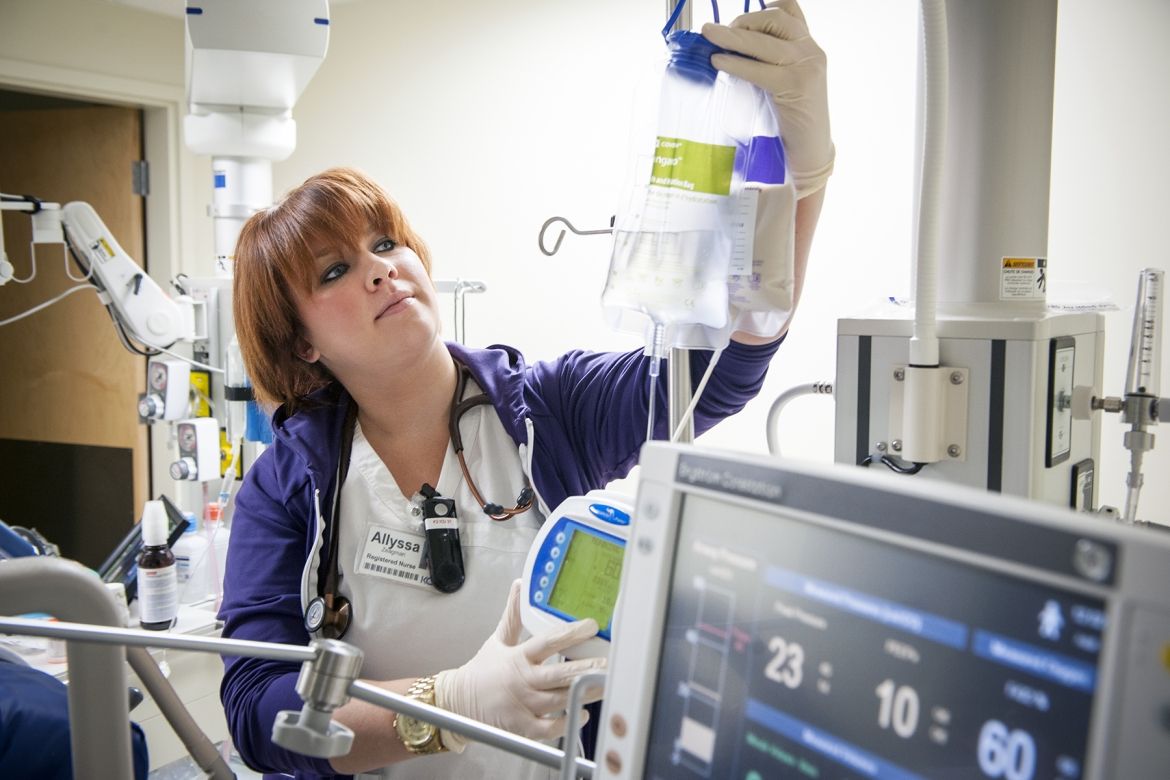
Registered Nurse Allyssa Zeagman setting up entral feeding bags with nutrition in them for an ICU patient at KGH.
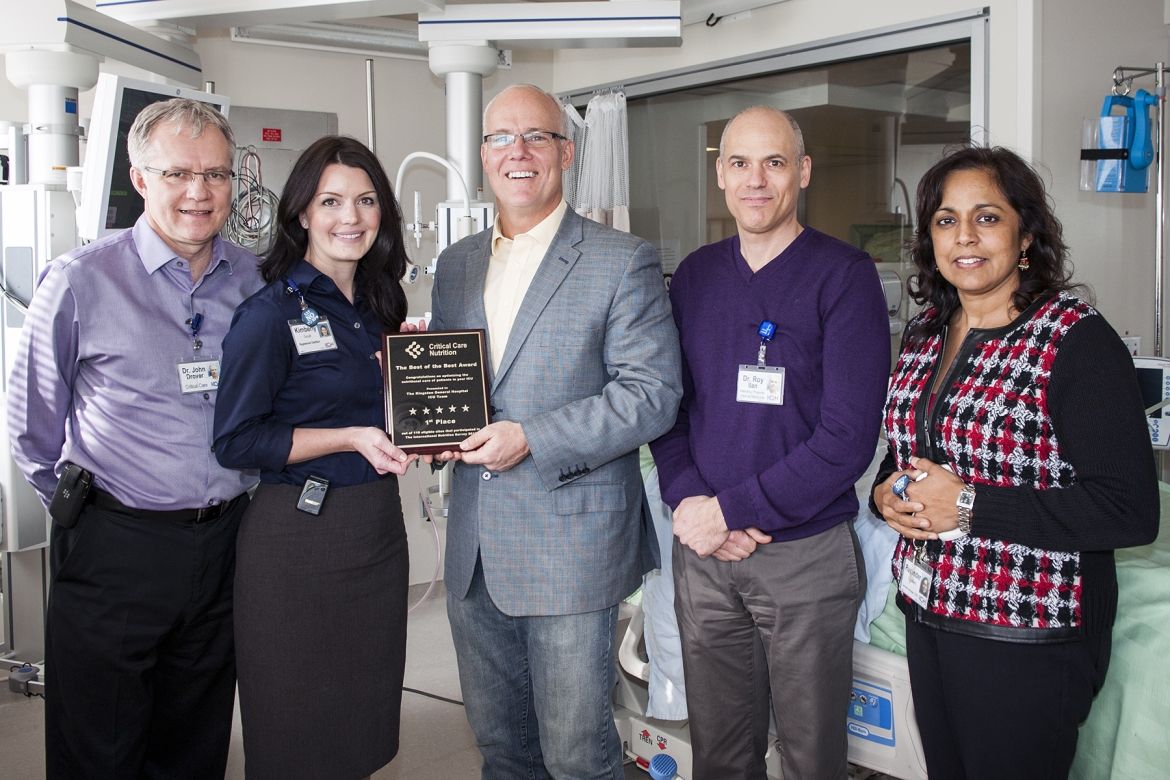
From L-R: Dr. John Drover, Critical Care Program Medical Director at KGH, Registered Dietitian Kim Gough at KGH, Dr. Daren Heyland from CERU, Dr. Roy Iian, Attending Physician at KGH and Rupinder Dhaliwal, Manager of Research and Networking at CERU.


